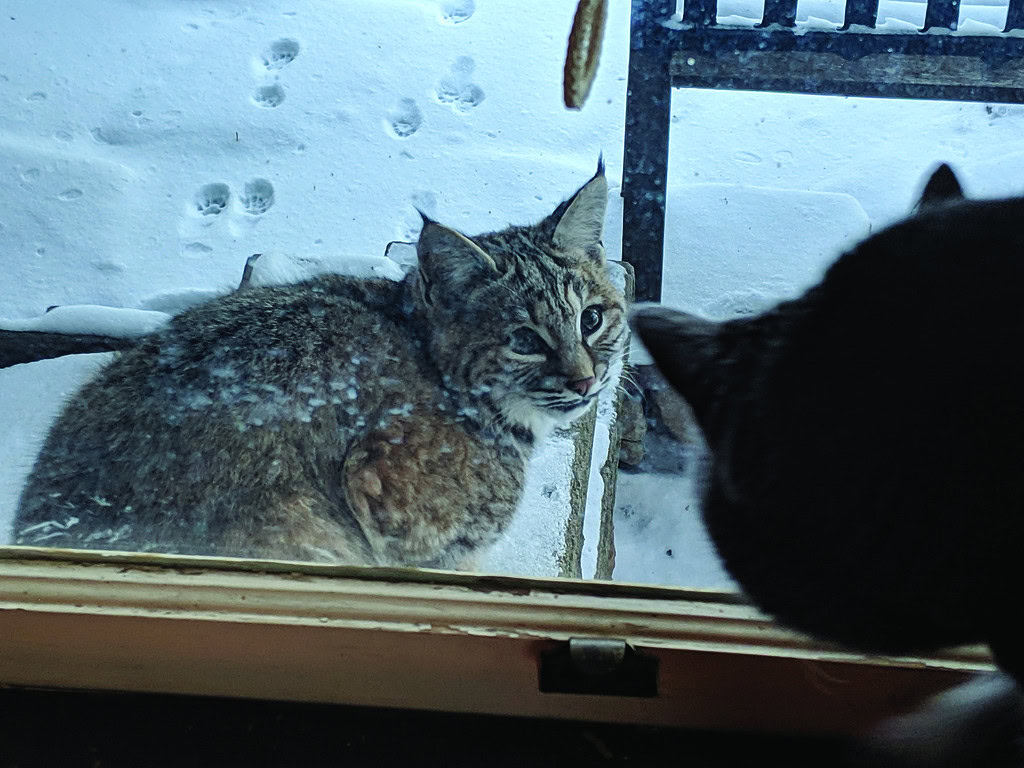
Trump’s deportation threats are not just talk
It has been estimated that around 40% of Latinos are planning to vote for Donald Trump. Many of these voters believe Trump will be better for them economically: Many are small business owners, and most are men. The former president said he would “carry out the largest domestic deportation operation in American history.”
History tells us that these threats are not hyperbole. If you know any Latino Trump supporters, remind them of the 1950s “Operation Wetback” and the deportations in the 1930s. It wasn't just non-citizens who were impacted: Over 1 million U.S. citizens of Mexican heritage were rounded up and taken to Mexico. As part of local deportation efforts, in 1932 the Boulder County Commissioners allocated funds to pay the railroad to transport people to Mexico.
During WWII, 120,000 Japanese-American citizens lost everything — homes, possessions and businesses — when they were rounded up and put into U.S. concentration camps. The government couldn’t deport them, so they were incarcerated.
Do these Latino Trump supporters really believe they and their families will be spared?
Many of you are already very knowledgeable of this history: I am merely reminding you so that you can think about your role in helping to ensure this history does not repeat itself. I remind you so you can remind others who may not know or have forgotten.
There are many stories, articles and historic accounts of what extreme ideologies and right-wing xenophobes are capable of. Pass them on to the doubters.
As the saying goes, “Silence is the voice of complicity.”
— Peter Salas, Lafayette
Collective bargaining promotes transparency, trust
I am writing to express my strong support for collective bargaining for police officers in our community of Lafayette. As we continually navigate the complexities of public safety and law enforcement, it is crucial that we ensure our police force has the resources, support and representation they need to effectively serve and protect us.
Collective bargaining allows police officers to negotiate their working conditions, salaries and benefits in a structured and equitable manner. This process not only empowers law enforcement personnel but also leads to a more effective and accountable police force. When officers have a voice in their employment conditions, they can better focus on their primary duty: serving the community. By allowing collective bargaining, officers will have stronger buy-in of their careers and hopefully lead to better retention.
Moreover, collective bargaining promotes transparency and trust between police forces and the communities they serve. It encourages open dialogue about working conditions and creates avenues for addressing concerns related to officer wellness, training and community engagement.
In recent years, we have witnessed a growing discourse about the need for police reform and community relations. Adopting collective bargaining mechanisms can be a significant step toward building a more accountable and responsive police force. It provides a structured platform for addressing grievances, negotiating improved working conditions and fostering a culture of collaboration.
I urge our community members and local officials to embrace collective bargaining for our Lafayette Police Officers by voting “yes” on Lafayette Ballot Question 2A.
By supporting this resolution, we invest not only in the well-being of those who protect us but also in the safety and quality of life for all residents. Thank you for considering this vital issue.
— Tyler Maynard, Fraternal Order of Police Lodge 3 Lafayette Trustee

Personal profiteering from a public resource
I am a resident of Boulder, a Colorado voter and a taxpayer. That makes me (along with 6 million of my fellow Coloradans) a part-owner of our beautiful state’s wildlife. The industry that exploits our magnificent mountain lions and bobcats does not represent the best of our state. With our modern understanding of wildlife biology and behavior, it no longer has a place in Colorado.
Everyone I discuss this issue with is shocked to hear that this activity is even still supported by our state. It is actually big business.
Hound packs with tracker collars can be hired for $8,000. Colorado Parks and Wildlife’s public data show that of the nearly 500 mountain lions killed by trophy hunters in the 2021-2022 season, 97.3% were killed using hounding. The percentage could actually be even higher, as there were 13 lions hunted without a reported method; data is based on self-reporting of lion trophy hunters in Colorado.
How does chasing cats up a tree with a pack of dogs and following in your truck to shoot it down reflect our collective values? How is setting live traps for bobcats with no possible enforcement of preventing their days of suffering in wet and freezing winter conditions, in the spirit of the law that made leghold traps illegal?
And what is the excuse for hunting thousands of bobcats anyhow, if not for their fur? It is for the personal profiteering from our collectively owned wildlife. I certainly don’t see thousands of Coloradans walking around in bobcat fur: They are being exported.
It is time for this cruelty and exploitation to stop. Please vote 'yes' on 127 to stop the trophy hunting and fur trapping of our wild cats.
— Marije ter Ellen, Boulder
Prop 127 opponents are out of touch with reality
Jerry Apker is way out of his depth in Boulder. We’re too smart, ethical and savvy to swallow such BS.
Prop 127 is a ‘yes.’ We refuse to treat our mountain lions and bobcats as garbage.
A ‘yes’ protects wild cats from the trophy hunting guides paid $8,500 to send out dog packs to trap mountain lions in trees. As advertised, these guides will “take you to your trophy,” where the dogs have “treed your trophy.” Guaranteed 100%.
The client is driven off road as a phone app tracks the GPS signal bouncing off the dogs’ collars. Some dogs get hurt, and have even been abandoned. It’s why 119 Colorado veterinarians support Prop 127.
The client shoots, watching the lion fall. He executes her on the ground as she’s swarmed by dogs. This is how 500 lions are killed yearly.
Fur trappers use cat food as bait then terrorize bobcats with dogs. Bobcats are bludgeoned or strangled to death — 965 in 2023 — to sell their fur at auction.
There’s excitement over killing. Some say ‘Shoot ’em in the eye,’ angled down into the throat to avoid blood splatter that ruins the price for fur. Others say, ‘Hit her over the head’ — copper pipe with a brass elbow is popular to crack skulls open. Drowning has been used in Colorado, because “a wet hide can make the fur slip.” Large cable ties around the neck pulled tight suffocate the cat who suffers for three minutes, veterinarians say. Another option: Shoot through the ear hole.
Yes includes outspoken CPW Commissioners, plus dozens of the best mountain lion and bobcat scientists — actual researchers in the field.
Jerry’s service dates to 1979. A lot has changed since then, such as the public appreciation for apex predators and serving the health and balance of nature.
— Julie Marshall is an organizer with Cats Aren't Trophies (CAT), which is advocating for a 'yes' vote on Prop 127. She lives in Lafayette.
